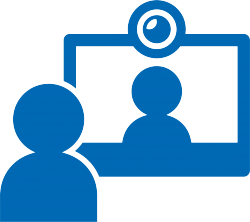We provide rapid assessment, treatment and rehabilitation for people with stroke, and provide support to their families.

Our dedicated stroke units provide acute care and rehabilitation in one place with highly skilled specialist teams of nurses, doctors and therapists.
We are also able to support some patients who we feel would benefit from going home early with a unique discharge service. This involves providing patients with intensive support and rehabilitation, seven-days-a-week, in their own homes. It has halved the length of time patients need to stay in hospital.
In hospital
In the first few days after a stroke, care focuses on assessment and preventing complications. Once you are stable, the stroke team will work with you on a rehabilitation programme to help you overcome or learn to cope with any damage the stroke has caused to help you regain as much independence as possible. The priority is for you to leave hospital as soon as you are fit enough.
Leaving hospital
Before you leave hospital a discharge plan will be agreed with you so you know what services and support you will receive, when you will receive them, and who will be coming to see you. Local community rehabilitation teams will support you once you leave hospital. The treatment plan, including any changes to medication, is automatically communicated to your GP/Pharmacy on discharge.
Follow-up care
We aim to offer all patients with stroke an appointment in the stroke review clinic 6 months after discharge. This is usually over the telephone but can be online or face-to-face if needed. Some patients will be offered earlier outpatient follow-up (usually around 6 weeks after discharge) if any specific issues need to be addressed. The follow-up plan will be made clear to you at the time you leave hospital.
Information and support
The stroke information and support service can be contacted on
Our stroke wards have leaflets about stroke and local services and may offer ward- based education sessions where you can find out more about stroke, recovery and help after you leave hospital.
Patient support groups
Self-help stroke groups are held in different locations across North Tyneside and Northumberland. For further information about the groups contact the stroke information service on 07814 615 523.
It may help to get together with others to share experiences, ways of coping and learn about services in your own area, so we hold events where patients and carers get together across North Tyneside and Northumberland.
Useful links
- www.stroke.org.uk
- northeast.
drivemobility @cntw.nhs.uk - www.
gov.uk/ guidance/ neurological-disorders-assessing-fitness-to-drive - https://
differentstrokes.co.uk - https://
www. northumberland.gov.uk - https://
mycare.northtyneside.gov.uk
Get involved
The involvement of patients and carers is essential to ensuring that we continue to provide a service that meets the needs of the people who use it.
We welcome feedback on your experience of the services you have received following stroke and are keen to work with you to get a better understanding of what really matters and is important to you.
If you would like to help us shape services for patients and carers living with stroke, or would like further information on the ways you can become involved with our service, please contact the service on 07814 615 523
Video consultations

We can offer online consultations where appropriate via a video call to make it easier for you to attend.
Rather than travelling to your appointment, you will receive a text or email before your appointment and simply need to click to join. Find out more here.
Supporting carers
Carers can help someone a great deal in their recovery from stroke but it is very important when you are caring for someone else that you do not forget about your own health and wellbeing.
You can have a carers needs assessment which is a discussion with the care manager/social worker. This gives you the opportunity to talk about how your caring role affects you in your day to day life and to help you think about the things that could make caring easier for you.
Contact your local carers centre for help and support at:
North Tyneside
North Tyneside Carers’ Centre, Floor 2, Wallsend Customer First Centre, 16 The Forum, Wallsend, NE28 8JR.
Tel:
Email: enquiries@ntcarers.co.uk
Web: www.northtynesidecarers.org.uk
Northumberland
Carers Northumberland, 107 & 109 Station Road, Ashington, NE63 8RS.
Tel:
